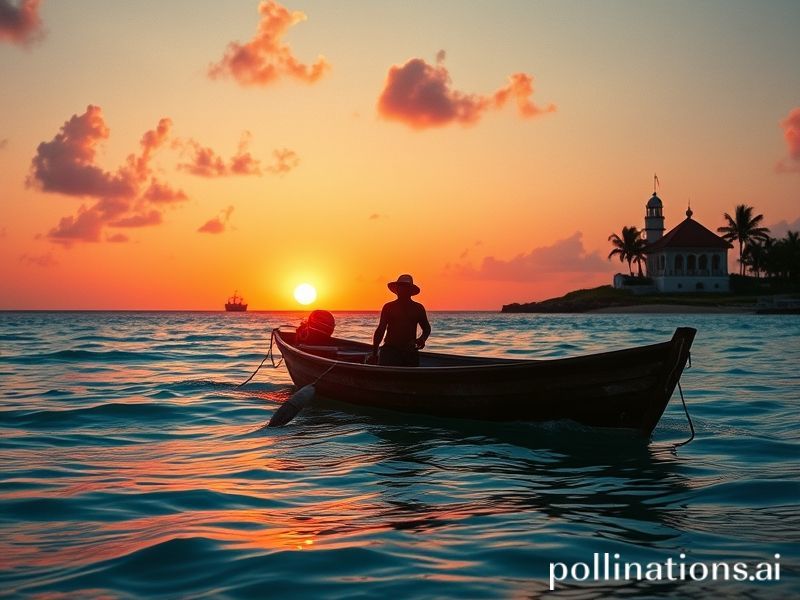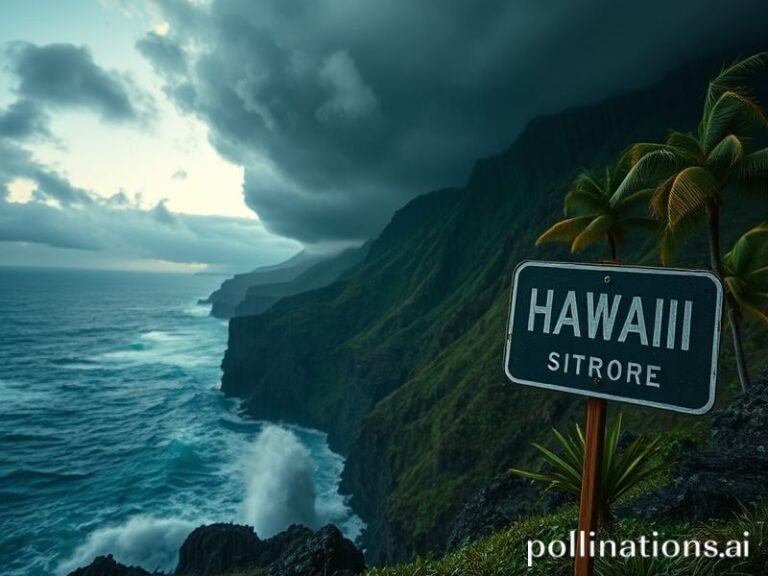Dominican Republic: The Caribbean’s Cynical Mirror to Global Delusion
The Dominican Republic, that sun-bleached comma between the Atlantic and the Caribbean, has spent the last few centuries perfecting a very particular global talent: offering the rest of us a mirror in which to admire our own contradictions. From the air it looks like a careless green smudge on the edge of empire, but down on the ground it is a master class in how to survive the twentieth-first century without ever quite admitting you’re living in it.
Start with the obvious exports: baseball players, rum, and an inexhaustible supply of Instagram-ready beaches. Wander beyond the all-inclusive wristbands and you’ll discover the less photogenic commodities—lithium, nickel, and the sort of cheap labor that keeps the world’s yoga-pants supply chain humming. If you’ve ever worn athleisure while doom-scrolling on your phone, odds are a Dominican hand touched the ore that powers your battery and stitched the seams that cradle your guilt. The island, in other words, is the stage on which the global consumer id performs its daily matinee: we want our paradise subsidized, preferably by someone else’s minimum wage.
The country’s politics play the same game of smoke and mirrors. President Luis Abinader, a former polling-industry magnate who looks like central-casting’s idea of “competent technocrat,” governs from a capital that still bears the architectural scars of Trujillo’s megalomania and Balaguer’s literary pretensions. Abinader’s great trick has been convincing credit-rating agencies that he is the hemisphere’s last adult in the room while quietly militarizing the Haitian border and letting Washington outsource its immigration paranoia to a Caribbean subcontractor. The result is a tidy hemispheric division of labor: the United States gets to pretend it has a southern frontier, and Santo Domingo gets a fresh infusion of security grants, which promptly disappear into the same bureaucratic pockets that have been dieting on foreign aid since the 1960s.
Meanwhile, the climate—long the DR’s most reliable public-relations officer—has started sending increasingly passive-aggressive postcards. Warmer seas turbocharge hurricanes that erase entire tourist towns in the time it takes to order a second piña colada. The government’s response is equal parts ingenuity and denial: solar farms bloom next to brand-new coal plants, and coastal luxury condos advertise “hurricane-grade windows” that will presumably outlast their owners’ mortgages. It’s the national version of installing a panic room in a house built on quicksand.
Elsewhere, the Dominican diaspora has become a living rebuttal to every nativist fever dream from Madrid to Minneapolis. Washington Heights remits more cash than most sovereign nations, Barcelona’s barrios ring with bachata playlists, and a kid from San Pedro de Macorís now captains the New York Mets like it’s the most natural thing in the world. The remittance economy keeps the peso afloat, WhatsApp keeps families stitched across oceans, and the whole arrangement allows the developed world to feel cosmopolitan while never actually having to learn Spanish beyond “una cerveza más, por favor.”
Which brings us to the grand punchline: for all the island’s apparent volatility—currency swings sharper than machete blades, power outages timed like avant-garde theater—outsiders keep arriving with the same glazed optimism. Canadians still buy beachfront condos they’ll never live in; crypto bros still pitch “eco-villages” powered by wishful thinking; European NGOs still parachute in to teach sustainable agriculture to farmers who have been rotating crops since before Europe discovered soap. The Dominican Republic endures these enthusiasms the way coral absorbs shipwrecks: slowly, mockingly, and with the quiet certainty that the tide will eventually turn everything into reef.
And so the island remains what it has always been: a geopolitical palimpsest where every empire writes its name in sand just before the hurricane hits. If you squint past the sunscreen haze, you can see the faint outlines of Spain, the United States, the IMF, and now the algorithmic overlords of global tourism, all stacked atop one another like layers of sedimentary hubris. It’s a small country, yes, but never a minor one; the world keeps proving that by returning, over and over, to the same stretch of coastline, hoping this time the view will absolve us. Spoiler: it won’t. But the rum is cheap, the Wi-Fi is decent, and the bartender has heard every apology before. He’ll still smile when he takes your dollars.







